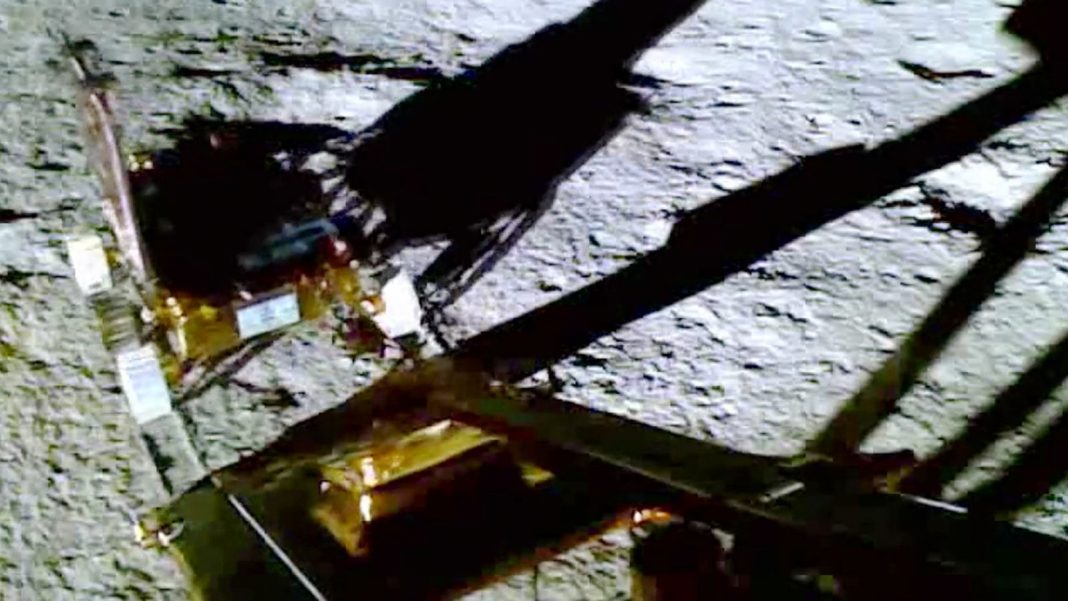An Indian lunar rover has made the first ever foray on the south side of the moon.
The Chandrayan-3 Rover descended a ramp from India’s spacecraft a few hours after the nation celebrated the historic landing on the moon’s south pole, which is thought to contain deep craters with water ice.
The vehicle is set to study the moon’s atmosphere and surface, including an analysis of its mineral composition, over two weeks, the Indian Space Research Organisation (ISRO) said.
The ISRO proudly added that “India [had taken] a walk on the moon” with its chairman Sreedhara Somanath adding the rover was working “very well”.
The craft touched down six weeks after launching on board a rocket from a spaceport in Andhra Pradesh to cheers and applause from mission control at Satish Dhawan Space Centre on Wednesday.
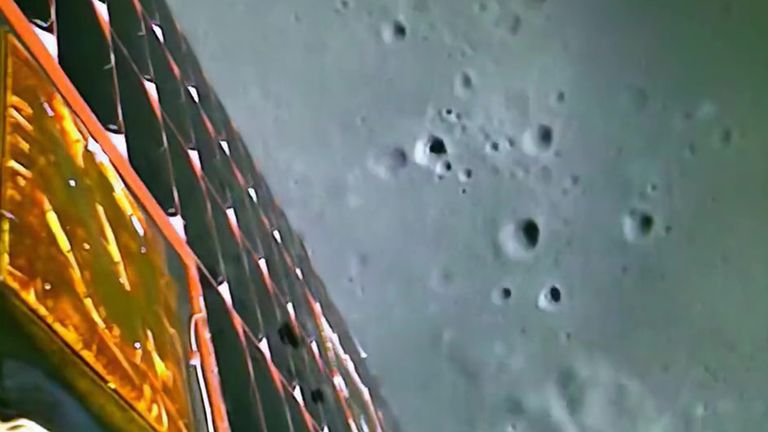
Chandrayaan-3 captures the moon’s image just prior to touchdown (Pic:@isro)
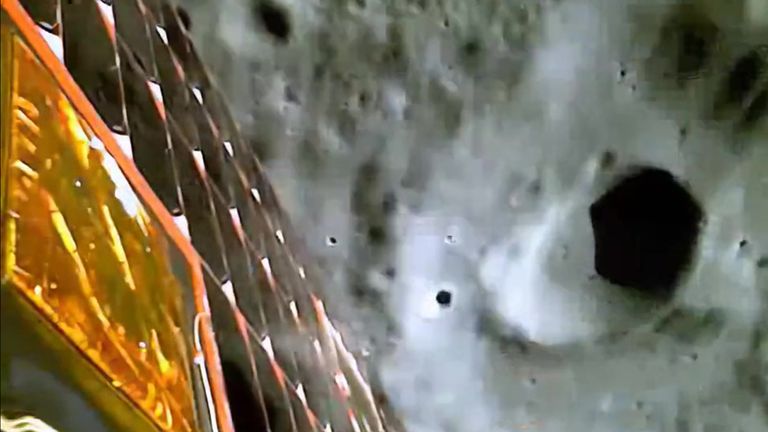
Pic:@isro
Prime Minister Narendra Modi joined a conference call at the space centre to watch the landing, waving a small Indian flag as the spacecraft touched down.
Making a triumphant speech to the ISRO, he said: “This is the heartbeat of 1.4 billion people. This is the new India, the new beginning, the new thinking of the new efforts.”
Turning his attention to the wider world, he said: “India’s successful moon mission is not just India’s alone.
Please use Chrome browser for a more accessible video player
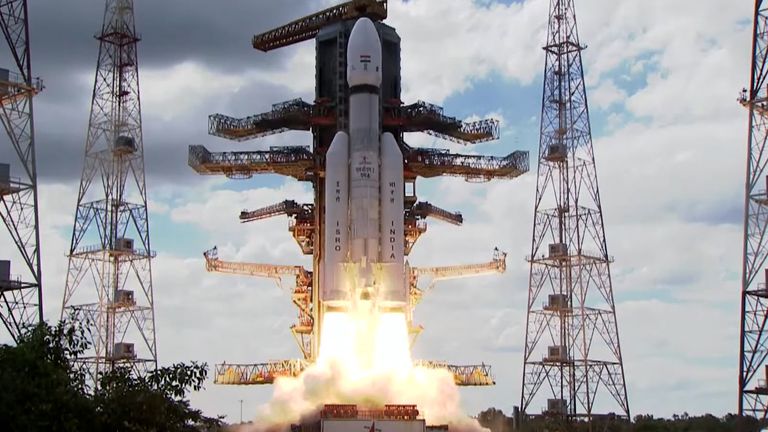
2:31
Why is India’s moon landing important?
“We can all aspire for the moon and beyond.”
Thousands of people across India crowded into offices, shops, homes and restaurants eagerly waiting to witness the outcome of the mission, and launched their own celebrations after the lander’s touchdown.
Read more:
Mysterious dark spot on Neptune detected from Earth for first time
Iran and Saudi Arabia among six new countries invited to join BRICS bloc to rival G7
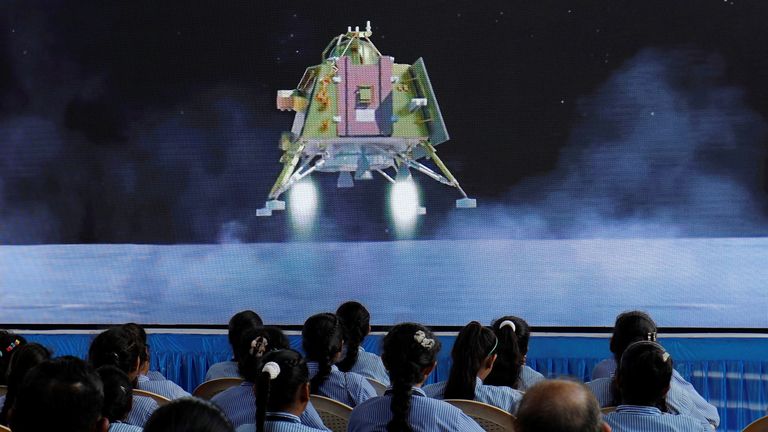
People watch a live stream of Chandrayaan-3 spacecraft’s landing in Gujarat
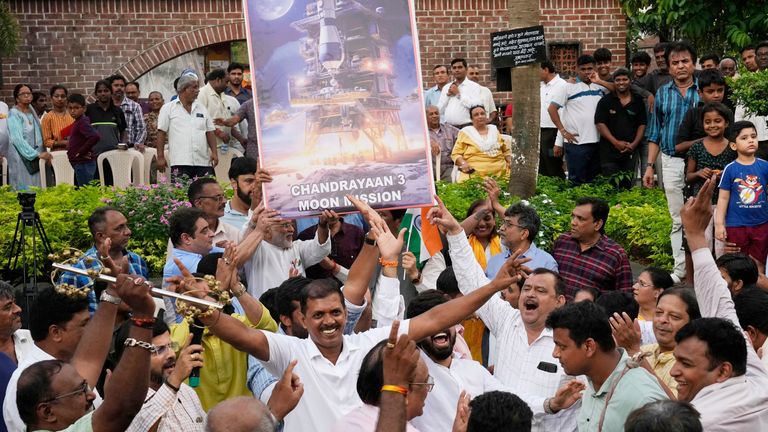
Pic:AP
And Indian media indulged in the achievement with a headline in the Times of India reading “India Goes Where No Nation’s Gone Before” and the Indian Express newspaper saying: “The moon is Indian.”
India has now joined a select few in the US, China and the former Soviet Union to have conquered the moon.
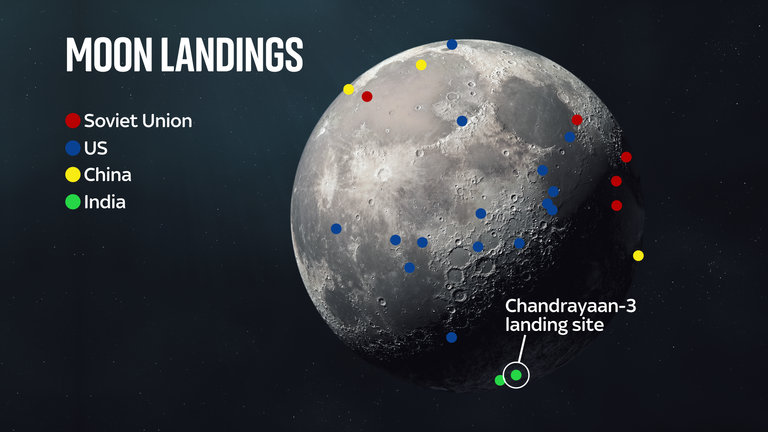
Next on the cards for India is a manned lunar mission, Mr Somnath said.
Many have been eager to study the moon’s south pole given the presence of water ice there, as it could be used for fuel, oxygen, and drinking water – with this mission laying the groundwork for a potential permanent base.
India’s landing follows Russia‘s failed attempt, after their Luna-25 spacecraft crashed into the moon.


